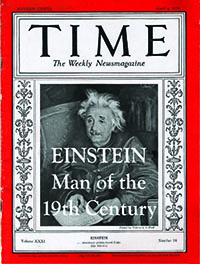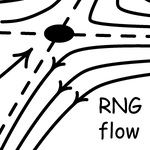
home >> lectures>>Rotman Institute

Einstein as the Greatest of the 19th Century Physicists
Thursday March 14, 2013

Modern writers often endow Einstein with a 21st century prescience about physical theory that, it just so happens, is only now vindicated by the latest results of the same writers' research. There is a second side to Einstein. His outlook and methods were clearly rooted in 19th century physics and a sense in which his work fulfills the discoveries of the 19th century.
"Einstein as the Greatest of the Nineteenth Century Physicists," pp. 142-51 in Proceedings, Seventh Quadrennial Fellows Conference of the Center for Philosophy of Science (12-14 June 2012; Mugla, Turkey).
See also "Einstein was Right" in my text Einstein for Everyone, for the lighter side.
Approximation and Idealization
Thursday March 15, 2013

Idealizations are distinguished from approximations in that only idealizations involve novel reference. This difference is important when idealizations are created by taking infinite limits such as in statistical mechanics. For these infinite limits may have very strange properties, much odder than the discontinuities of phase transitions now widely acknowledged in the literature. As a result, these infinite may limits fail to provide idealizations at all and we may have only approximations, that is, inexact descriptions.
Are phase transitions a banner instance of emergence or treated reductively by renormalization group methods? The answer depends on how you define levels between which the relations of reduction and emergence obtain.
"Approximation and Idealization: Why the Difference Matters" Philosophy of Science, 79 (2012), pp. 207-232.
"Infinite Idealizations," Prepared for Vienna Circle Institute Yearbook (Springer: Dordrecht-Heidelberg-London-New York).
Confusions over Reduction and Emergence in the Physics of Phase Transitions, in my Goodies pages.
Videos of lectures.